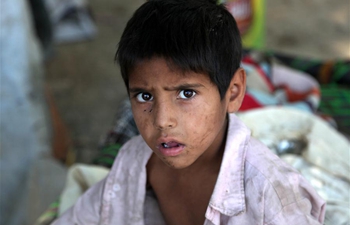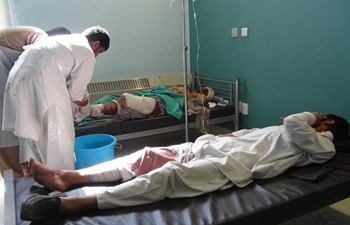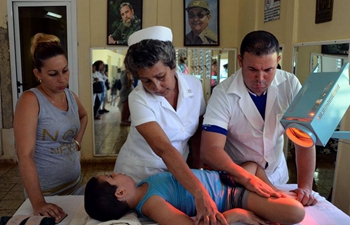UNITED NATIONS, Oct. 17 (Xinhua) -- The objective to end poverty by 2030 envisaged in the United Nations' Sustainable Development Goals will never be met without addressing the issue of women's reproductive rights, according to a UN report.
"This new UNFPA report argues that these goads, especially the one to end poverty, may never be achieved without first tearing down economic, social, geographic and other barriers that hundreds of millions of women face every day in exercising their reproductive rights," said Richard Kollodge, editor of The State of World Population 2017 report issued by the UN Population Fund (UNFPA).
"This report is careful to note that you cannot fix economic inequality just by fixing inequalities in reproductive health. However, the report does make the case that progress toward economic equality is possible if you make sure that all women have the power, the information and the means to decide whether, when, with whom and how often to have children," Kollodge told reporters at UN Headquarters on Tuesday.
"A woman or even an adolescent girl who cannot enjoy reproductive rights is one who cannot stay healthy, cannot complete her education, cannot find decent work outside her home, cannot chart her economic future," he said.
The UNFPA report was released to coincide with the International Day for the Eradication of Poverty, which falls on Oct. 17. This year's theme is "Answering the Call of October 17 to End Poverty: A Path Toward Peaceful and Inclusive Societies."
Inequality is often understood in terms of income or wealth, said Kollodge, but there are other dimensions. One dimension that has been largely ignored is the enjoyment or denial of reproductive rights and the effect it has on all humanity, he said.
"Economic inequality divides countries into haves and have-nots; inequality in reproductive rights divide people into cans and cannots."
Without access to contraception, poor women, particularly those who are less educated and live in rural areas, are at heightened risk of unintended pregnancy, which may result in health risks and lifelong economic repercussions, said the report.
Some 214 million women and adolescent girls in developing countries have an unmet demand for family planning. Data from 98 developing countries show that the unmet demand for family planning is greater among women who are poorer, rural and less educated than among their richer, urban, more highly educated counterparts, said the report.
The report listed 10 recommended actions, including the respect for human rights, better antenatal and maternal health care for the poorest women, facilitation of family planning for women in the poorest households, promotion of girls' education, better child care to enable women to enter or remain in the paid labor force, and measure to boost income growth for the poorest.

















